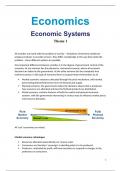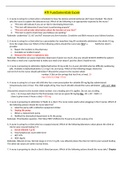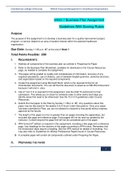Lecture notes
Economics (Themes 1-2)
- Module
- Economics (IY403)
- Institution
- University Of The West Of England Bristol (UWEB)
This document covers the first two themes in first year university economics. It provides an introduction to economics, talks about the economic systems and supply and demand (market forces).
[Show more]





